What is Database Migration?
Belitsoft ensures smooth data transition to new databases, on-premises or cloud.
Our advanced database migration tools automate the process for accuracy and efficiency in achieving your desired database state.
Database migration is the process of migrating data from one or more source databases to one or more target databases by using a database migration service. When a migration is finished, the dataset in the source databases resides fully, though possibly restructured, in the target databases. Clients that accessed the source databases are then switched over to the target databases, and the source databases are turned down.
When to Migrate Your Database
 Outgrowing the Current Database
Outgrowing the Current Database
Legacy versions of databases like Oracle 8i, SQL Server 2000, or IBM DB2 v8 may not handle increased data load, transactions, or users, causing slow performance, downtime, and data loss, negatively affecting business and customers.
 Migrating Away from Legacy Tech
Migrating Away from Legacy Tech
Legacy database systems often operate on outdated hardware and software architectures, which can limit their performance and scalability. For instance, their capacity to handle large data volumes and high transaction rates. Moreover, essential advanced security features such as encryption at rest or in transit, multi-factor authentication, and fine-grained access control, may be missing.
 Database Unfit for Use Case
Database Unfit for Use Case
Initial plans may not match subsequent realities during development. For example, developers might use existing architecture to avoid dependencies or to save on costs. Eventually, it may turn out that either the entire database or part of it is underperforming. This can occur if the most suitable technological solution hasn't been employed across all locations.
Database Migration Services
Transferring a database from one cloud service to another. For instance, migrating from Amazon RDS to Azure SQL Database.
Moving a database from a company's own servers to a cloud-based service. Examples include migrating from a local SQL Server to Amazon RDS or Azure SQL Database.
Migrating databases from one type of database system to another, such as from MySQL to PostgreSQL. This can occur in the cloud and on-premise contexts.
Advantages of Database Migration
Migration is not always a significant change. Sometimes it's just a version update. Seek assistance from qualified specialists for best results. Otherwise, minor oversights can precipitate serious problems in the future. Collaborating with specialists avoids issues such as data loss or corruption.
Improved Management of Large Data Sets. Modern databases outperform older systems, particularly in handling large data volumes and complex queries.
Enhanced Security. Modern databases come with advanced security features to protect your data. This includes encryption, access controls, auditing capabilities, and more.
Potential Cost Savings. Modernizing to a cloud-based database can often lead to cost-saving benefits, particularly through a pay-as-you-go model. This model may eliminate some expenses, such as hardware maintenance.
Access to New Features. Modern databases come with a host of advanced features that aren't available in older systems. This includes advanced analytics capabilities, real-time processing, machine learning integration, and more.
Integration with Modern Technologies. Older systems lack the advanced features of modern databases. This includes advanced analytics capabilities, real-time processing, machine learning integration, and more.
Future-Proofing Your Business. Modernizing your target database with its further maintenance sets your business up for the future. You'll be equipped to leverage new technology and trends and adapt to changes in your industry.
Scalability Adaptation. A scalable database is essential for businesses with sudden or substantial data influx. For instance, event planning or agricultural marketplaces may have seasonal surges exceeding typical loads. In such situations, scalability helps accommodate fluctuations in your database. If your data storage targets a stable demographic, like inhabitants of a particular city area, without drastic changes - such as a population boom or mass relocation, scaling your database may be less frequent. Even in such situations, your data might only vary by around +/- 5% over a year.
Need expert collaboration to experience a flawless migration and mitigate data risks?
Secure Your Migration Today
Database Migration Process by Belitsoft
We offer a range of database migrations to suit your business needs. Whether full or partial, we'll take care of your data transfer.
| SOURCE DATABASE ANALYSIS: | We begin by fully grasping your source database, its size, 'large' tables, and data types. |
| TOOL SELECTION: |
We choose the right tool for your specific needs and setup, which may include language-specific frameworks/libraries or independent database-migration software like Flyway or Liquibase. |
| DATA ASSESSMENT: | We identify data quality rules to eliminate inconsistencies, duplicates, and incorrect information, reducing the risk of delays, budget overruns, and failures. |
| MIGRATION DESIGN: | Our data migration plan details transfer, transformation, and integration into the target system. |
| SCHEMA MIGRATION: | We move all elements of the database structure to the new system. The new database system needs to function like the old one, which may require database modernization to match its features. |
| DATA LOAD AND PERFORMANCE VALIDATION: | Our validation ensures proper function and performance. This phase is iterative: we load some data, do some functional and performance evaluation, and repeat the process. Once confident in validations, we load everything from your system into the new database. |
| FEATURE FLAGS IMPLEMENTATION: | We use feature flags, a powerful technique, to modify system behavior without changing code. |
| LIFE TEST CONDUCTING: | We test migration with live data for real-world scenarios. |
| OLD DATABASE RETIREMENT POLICY: | After a successful migration, we develop a retirement policy for the old database, if required. |
Ready to make the move? Stay agile in the digital age with Belitsoft data migration services. Contact us to learn more.
Technologies and tools we use
Each migration project is unique and at Belitsoft, we select tools based on your requirements. We aim to migrate your database seamlessly and efficiently, minimizing downtime and maximizing productivity with top tools.
We perform AWS migrations with minimal downtime both homogeneous (within the same platform) and heterogeneous (to another platform). Replicating data across multiple Availability Zones (AZs) ensures uninterrupted application operation during migration. For large migrations like terabyte-sized databases, AWS DMS ensures no data loss and low expenses. You pay only for compute resources and log storage used.
We utilize Azure cloud migration for clients looking to migrate to Azure. Prior to migration, we identify requirements and then estimate the cost of running your workload in Azure. We migrate your databases to Azure, ensuring a comprehensive and scalable process that includes data, schema, and objects from multiple sources. Your database and server objects, along with user accounts and agent jobs, migrate completely.






Best Practices for Database Migration by Belitsoft
Small, Manageable Changes
We use a gradual approach in data migration. By taking manageable steps, we reduce the risk and make the migration process easier to handle and troubleshoot.
Separation of Concerns
We structure applications to separate different functionalities, minimizing the risk associated with changes during migration.
Single Responsibility Principle
We group related parts of your code together, as they are likely to change together during database migrations. This principle keeps your code organized and manageable.
Decoupling Release from Deployment
We use feature flags to decouple the release of new features from their deployment, which is crucial due to potential risks like downtime and data loss during database migration.
Feature Flagging the Data Access Layer
We strategically employ feature flags to ensure a controlled and gradual data migration. A simple toggle or complex multivariate flag can do this.
Avoiding Ground-Up Redesign
We check your design before data migration to avoid a complete redesign. We separate functionalities to minimize change and group related code together.
Minimizing Downtime
Time equals money in business. That's why we aim for near-zero downtime during database migrations. Our team guarantees uninterrupted business operations during migration.
Implementing a Kill Switch
We have a kill switch to instantly revert to the old database in case of any migration issues, ensuring data and operations remain secure.
Progressive and Strategic Release
We gradually increase traffic to the target database while conducting scalability testing to prevent overload. Simultaneously, strategic traffic direction, like beta-testing with a subset of users, targeting based on geography, device, or identity and stakeholder validation, ensures a smooth transition with minimized risks and thorough testing and validation at every stage.
Leveraging Version Control Systems (VCS)
We maintain a detailed history of changes to keep your target database and code compatible. This system helps us efficiently resolve conflicts, like changes to the same part of the database. We store this history with your code for easy management.
Why Belitsoft
At Belitsoft, we're not just about moving data. We're about transforming your business. Our database migration service redesigns and enhances database architecture to make your data work for you.
 Accuracy and Quality
Accuracy and Quality
We accurately migrate all your data in the correct order. All changes are applied in the original database sequence, with no data left behind and no duplicates created.
 Tailored to Your Needs
Tailored to Your Needs
We recognize your unique business needs and carefully analyze your current database state. We then select tools and a migration strategy that aligns with your future goals.
 Agile Approach
Agile Approach
Belitsoft's developers adjust your database structure as your project evolves, being flexible and ready for change. This approach makes database development as smooth as building with Lego blocks.
Choose Belitsoft for your database migration needs and experience a seamless transition with minimal downtime. Our team of experts is ready to guide you through every step of the process, ensuring your data remains secure and accessible.
Frequently Asked Questions
- Preventing data loss. Fear of data loss is a serious concern during database migration. Before migration, we adopt rigorous data backup and recovery strategies to minimize risk. Our team of experts thoroughly tests each migration in a safe, isolated environment before applying it to the actual database. Your data is secure and can be swiftly restored in the event of an issue.
- Securing your data. During a database migration, data security can be vulnerable if handled incorrectly due to non-compliance, inadequate access controls, or data exposure during transit. We encrypt all data before the migration process and maintain strict access controls to prevent unauthorized access and data breaches.
- Managing multiple databases. Large companies often have separate databases in various departments. At Belitsoft, we simplify this complexity. We audit databases and create detailed migration plans. Plan ensures consistency and accuracy by converting schemas and normalizing data.
- Navigating complex migration strategies. Selecting a database migration approach is difficult due to data complexity, large database size, system differences, need for data integrity, compliance regulations, and high-level technical expertise. At Belitsoft, we conduct comprehensive research and analysis to understand every detail. We devise a customized plan for migrating your database.
Migration tools are software applications that help manage database migrations. Database migration tool choice depends on project needs, database systems, and preferred migration strategy (state-based or change-based). Once the migration starts, we recommend using a single tool to avoid complications.
Homogeneous vs Heterogeneous
- Homogeneous database migration. We offer homogeneous database migrations. This process involves moving your application and its data from one database to another while keeping the underlying Database Management System (DBMS) consistent. For instance, we can help you transition from an on-premise SQL Server to an Azure-hosted SQL Server, or from PostgreSQL hosted in EC2 to PostgreSQL on Amazon RDS. This migration strategy is effective for cost optimization, cluster consolidation, and transitioning from data centers to cloud-based solutions.
- Heterogeneous database migrations. This service involves transitioning your application and its data from one database to another, with a change in the underlying Database Management System (DBMS). For example, we can facilitate your migration from Microsoft SQL Server to PostgreSQL, or from PostgreSQL relational database to DynamoDB. Businesses opt for heterogeneous database migration for improved capabilities, scalability, performance, and cost optimization, especially when transitioning to cloud-native databases.
Active-Passive vs Active-Active
For your business needs, we offer active-passive or active-active migration.
- During an active-passive migration, we modify the source database while the target database is in read-only mode.
- In active-active migration, both databases can be modified.
State-based vs Change-based
These are two main types of database schema transformation strategies.
- State-based database migration creates artifacts for rebuilding the desired database state from scratch.
- Change-based database migration builds on a previous database state to define operations to achieve a new state.
Portfolio
Recommended posts
Our Clients' Feedback





















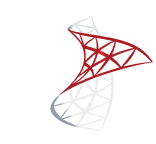










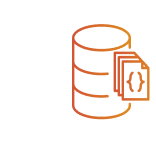

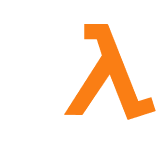

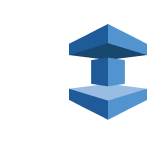





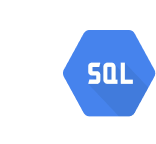


















Belitsoft has been the driving force behind several of our software development projects within the last few years. This company demonstrates high professionalism in their work approach. They have continuously proved to be ready to go the extra mile. We are very happy with Belitsoft, and in a position to strongly recommend them for software development and support as a most reliable and fully transparent partner focused on long term business relationships.
Global Head of Commercial Development L&D at Technicolor